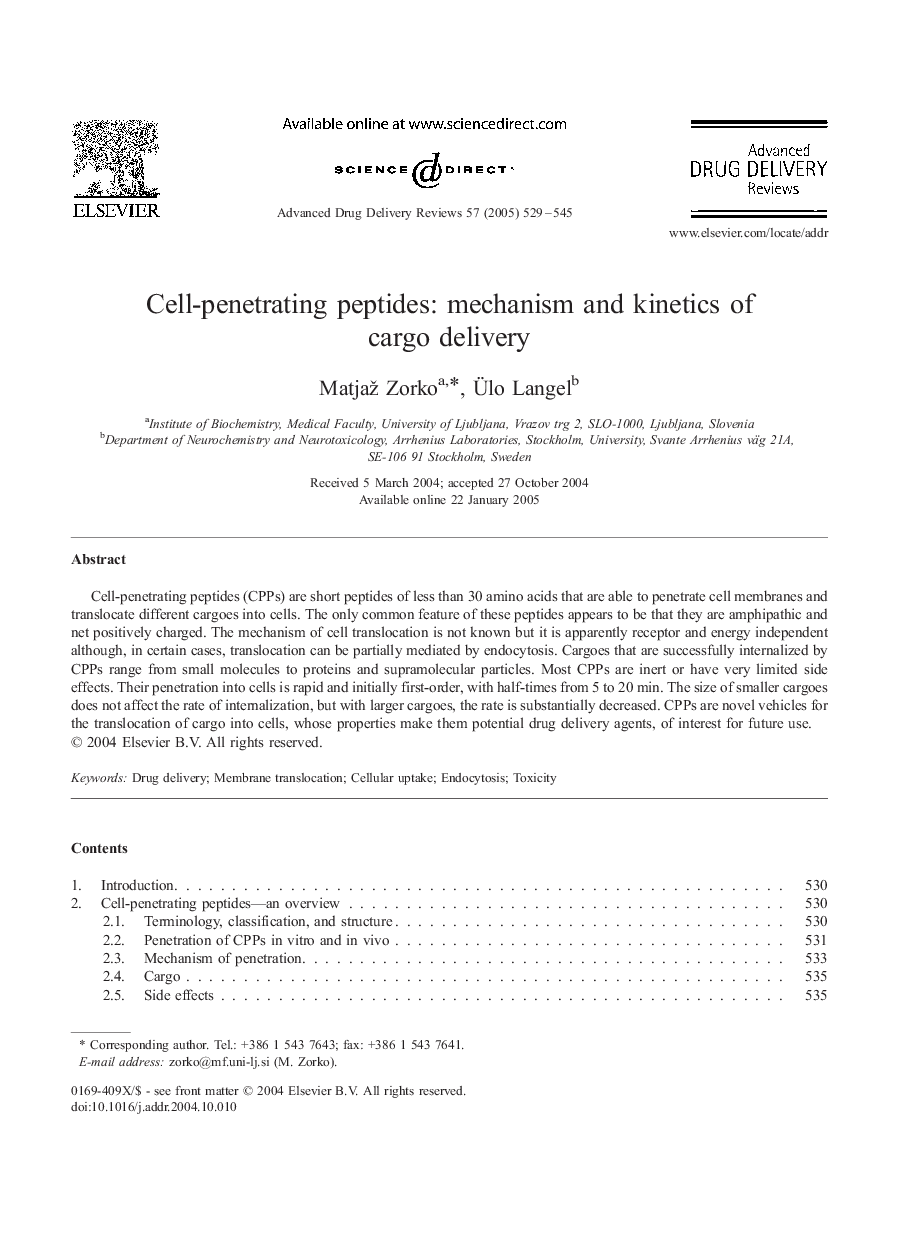| Article ID | Journal | Published Year | Pages | File Type |
|---|---|---|---|---|
| 10884005 | Advanced Drug Delivery Reviews | 2005 | 17 Pages |
Abstract
Cell-penetrating peptides (CPPs) are short peptides of less than 30 amino acids that are able to penetrate cell membranes and translocate different cargoes into cells. The only common feature of these peptides appears to be that they are amphipathic and net positively charged. The mechanism of cell translocation is not known but it is apparently receptor and energy independent although, in certain cases, translocation can be partially mediated by endocytosis. Cargoes that are successfully internalized by CPPs range from small molecules to proteins and supramolecular particles. Most CPPs are inert or have very limited side effects. Their penetration into cells is rapid and initially first-order, with half-times from 5 to 20 min. The size of smaller cargoes does not affect the rate of internalization, but with larger cargoes, the rate is substantially decreased. CPPs are novel vehicles for the translocation of cargo into cells, whose properties make them potential drug delivery agents, of interest for future use.
Related Topics
Life Sciences
Biochemistry, Genetics and Molecular Biology
Biotechnology
Authors
Matjaž Zorko, Ãlo Langel,
